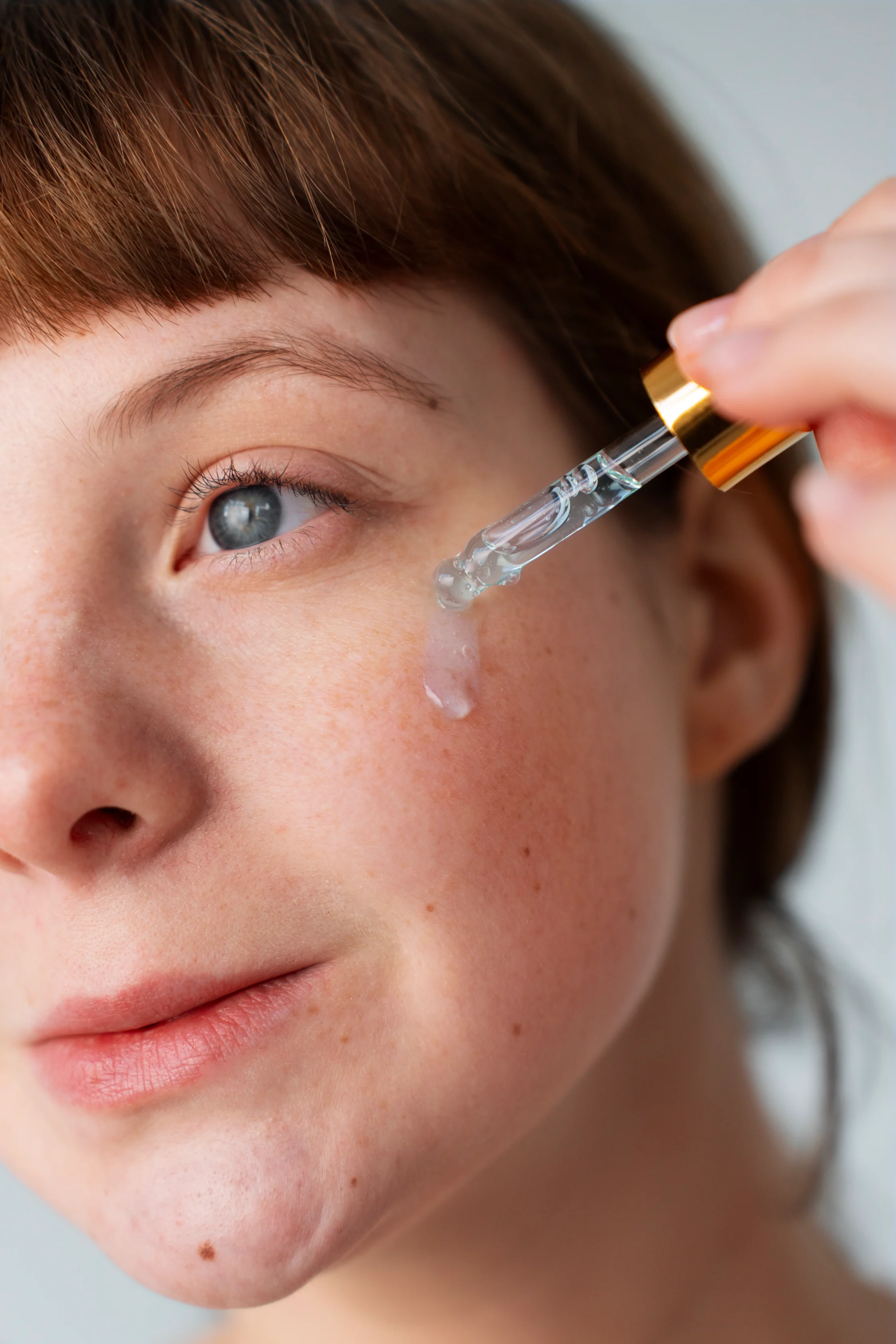
Retinol is one of the most powerful active ingredients in skincare, known for its ability to improve skin texture, reduce wrinkles, and treat acne. However, when it comes to oily skin, many questions arise about its actual effects. Does it help regulate oil production? Can it cause irritation or dryness? In this article, we will explore the effects of retinol on oily skin, the best practices for using it effectively, and clarify some common misconceptions.
Analyzing Retinol’s Effects on Oily Skin: Benefits and Drawbacks
Benefits of Retinol for Oily Skin
Oily skin is characterized by excessive oil production, making it prone to issues such as acne, enlarged pores, and excessive shine. Retinol helps improve oily skin health in several ways, including:
- Reducing Acne: Retinol helps cleanse pores and reduce oil production, minimizing breakouts and blackheads.
- Regulating Oil Production: It contributes to balancing oil secretion, helping to control excess shine.
- Improving Skin Texture: It promotes cell renewal, making the skin smoother and reducing the appearance of large pores.
- Fighting Wrinkles and Fine Lines: Retinol boosts collagen production, maintaining skin elasticity and protecting it from signs of aging.
Potential Drawbacks of Using Retinol on Oily Skin
Despite its numerous benefits, retinol may cause some side effects, especially when used for the first time or at high concentrations, such as:
- Irritation and Dryness: It may lead to redness and peeling, especially in the early stages of use.
- Temporary Increase in Oil Secretion: In some cases, the skin may produce more oil before adapting to the product.
- Sun Sensitivity: Retinol makes the skin more susceptible to UV damage, so daily sunscreen use is essential.
- Incompatibility with Certain Products: It may not work well with strong exfoliating acids such as salicylic acid and glycolic acid, which can increase skin sensitivity.
Best Practices for Using Retinol on Oily Skin
To maximize the benefits of retinol while minimizing side effects, consider following these steps when incorporating it into your skincare routine:
Choosing the Right Product
- Opt for a lightweight serum or gel rather than heavy creams to avoid clogging pores.
- Products that contain niacinamide alongside retinol help reduce irritation and control oil production.
- Ensure the product is oil-free to prevent excessive shine or breakouts.
Common Misconceptions About Retinol and Oily Skin
Many beliefs about using retinol for oily skin circulate, some true and others needing clarification.
Does Retinol Increase Oil Secretion and Cause Acne?
At the beginning of use, the skin may experience a temporary increase in oil production, but this phase is short-lived. Over time, retinol helps regulate oil production and reduce acne.
Does Retinol Always Cause Irritation for Oily Skin?
Irritation occurs mainly at the start due to the skin adjusting to retinol, but it gradually subsides with proper usage and good hydration.
Is Retinol Too Drying for Oily Skin?
Retinol does not excessively dry out oily skin when used correctly. Instead, it helps improve texture and even out skin tone over time.
Can Retinol Be Used with Other Skincare Ingredients?
Yes, retinol can be combined with niacinamide, hyaluronic acid, and ceramides to reduce irritation and enhance hydration. However, it should not be used with strong acids in the initial stages.
The Importance of Skin Radiance and Retinol’s Impact on It
The Importance of Skin Freshness and Retinol’s Impact on It
Radiant skin is a key indicator of its health and vitality. Healthy skin has good elasticity, an even tone, and is free from blemishes and pigmentation. Retinol plays a significant role in enhancing skin freshness by exfoliating dead skin cells, stimulating collagen production, and regulating oil secretion. Incorporating retinol into a daily routine significantly helps maintain skin glow and protect it from environmental damage.
Is Retinol Suitable for Oily Skin?
If you struggle with acne, enlarged pores, or excessive shine, retinol could be an effective solution for improving your skin’s health. However, it’s best to start with a low concentration and gradually increase usage to avoid unwanted side effects. Consistent hydration and sun protection will ensure you reap the maximum benefits of retinol without irritation or excessive dryness.
Retinol is one of the best ingredients for oily skin care, helping to treat acne, reduce pore size, and regulate oil production. However, improper use can lead to temporary irritation or increased skin sensitivity. Therefore, following the correct usage guidelines and combining retinol with suitable ingredients is crucial to maintaining healthy skin without issues.
For more information on skincare products containing retinol, visit sandraderma to explore the best options for your skin type.
